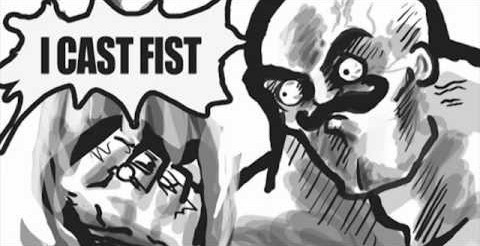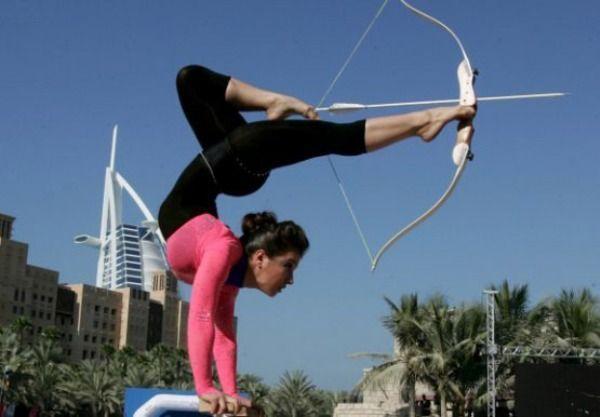Super-simple die systems
I'm always obsessed with the idea of simple mechanics. When I can identify some mechanics that reduce complexity without sacrificing simulation, I'm happy. I'm also trying to find ways to make the hobby more accessible. One way that role-playing games can be a huge turnoff to a lot people is the complexity factor. |
| Rolling the old D2 |
Reading Blades in the Dark (see my pre-review) has helped me figure out some of the final details on a super-simple die mechanic. The idea is that it boils down to a single D6 roll.
- 1-3: you fail, 4-6: you succeed.
- For situations with a middle ground - 1-2: bad, 3-4: average, 5-6: good.
- If you roll a 6, roll the critical die; if that comes up 6, it's a critical success.
- If you roll a 1, roll the critical die; if that comes up 1, it's a critical failure.
- Non-critical rolls of sixes and ones are considered to be notable successes and failures, in case that is a valuable distinction.
/cdn.vox-cdn.com/uploads/chorus_image/image/54068473/cover.0.jpg) |
| Even this guy is down with the new mechanic |
In either case, we're talking about the idea that you can roll an additional die and take the higher or lower of the two dice, depending on whether it's for an advantageous or a disadvantageous situation.
My idea is to take this a step further and represent all relevant factors with advantage and disadvantage dice, allowing more than one to accumulate. In my system, I call these pros and cons, and they cancel each other out. A PC's skill or talent will give them pros, as will easy tasks or advantageous situations. A very challenging task might have four cons, which could cancel out a lot of skill.
So far, so simple. One additional wrinkle: if you roll multiple sixes with pro dice, that's an automatic critical success, while multiple ones with con dice is an automatic critical failure.
Anyway, this stuff isn't very OSR, but it shares a certain spirit with OSR, since the system really requires a lot of GM rulings.
OSR abilities
This is a bit closer to home. After years of hating the idea of hit points and armor class in D&D for their lack of "realism," I've slowly moved first to accommodation, and finally understanding. They aren't perfect, and there are ways you can improve on them, but these concepts ultimately work. Hell, you might as well keep using the terms just because everyone knows what they mean.
One of the things I'm still a bit less happy with are the Classic Six abilities and how they are used. I'm a fan of the 3 to 18 curve that maps to a -3 to +3 modifier for various rolls. I'm less sure with whether we actually need to record the 3d6 score instead of the modifier; I think the Index Card RPG is a good demonstration of this fact.
It's the abilities themselves that don't quite work for me. Let's go through them one-by-one:
Strength
My problem with Strength isn't with Strength, it's with...
 |
| Nothing wrong with that |
Constitution
OK, this one is a bit...off. I've never understood how you can be a big beefy (i.e. strong) fighter who can't take a hit or poison because you're, what, asthmatic? It's always seemed weird to completely decouple these.In addition, I'm not sure that either one should be contributing to HP. If we're to understand what hit points really are, we need to imagine that they usually represent skill and dwindling ability to avoid damage.
For monsters, beefiness is usually going to be pretty instrumental, but PCs are different. A tenth-level fighter who takes four points of damage from a sword "hit" probably wasn't even grazed. I'm thinking that agility (i.e. Dexterity) would be useful here.
 |
| Shouldn't actually be like this |
Sure, having a lot of stamina going to keep you avoiding those blows for a longer period of time. But let's say we get rid of Constitution and fold it's toughness into Strength (for Fortitude-style saves and the like) and stamina into Dexterity. Then Dexterity becomes a natural for providing the hit point bonus, now representing general athleticism.
So what should Strength do now? Here's an idea: use it for the Armor Class modifier! A beefy guy is just going to be harder to hurt, and you can represent it this way. Then you can go all Lamentations and have Strength modifiers apply to all melee attack rolls but not damage rolls.
I know that it's a bit of a weird idea, but I don't think it has much effect on the OSR game balance. All the same modifiers are still there; they've just been moved around.
Dexterity
I've already mentioned some different ways Dexterity could be used. But let me mention one problem I've always had with Dexterity: fat snipers. Do they have a high Dex or a low one? What I'm really getting at here is the conflation of hand-eye coordination with agility. It's never rested well with me.
One thing that I'd consider here, if we went ahead and dropped Constitution, would be splitting Dexterity into Agility and Dexterity. Agility would be for Reflex-type saving throws, initiative rolls and hit points, while Dexterity would provide a bonus to all attack rolls (on top of Strength bonuses!) and be used for certain kinds of skills like picking locks, surgery, etc.
Is this balanced? I think so, but I'm not sure. You can get a really nice melee bonus with high Strength and Dexterity combined, which might seem unbalanced, but we've dropped Strength melee damage modifiers, so it seems...fair? Otherwise, it's mostly a reshuffling of responsibilities.
Wisdom
I hate almost everything about this ability. Let's face it: Wisdom is so-called for Clerics to have an appropriate-sounding prime requisite. And it doesn't even sound appropriate for Clerics when you're talking about evil Clerics, or Clerics of a berserker god. Pretty much just for this fish-out-of-water servant of Christ that somehow gets transplanted to D&D land, including a prohibition against bladed weapons - this last one is always problematic for priests of the Axelord.
What I'm saying is screw D&D Clerics and screw Wisdom. So what does D&D use Wisdom for? I've seen is used for common sense, perception, willpower and spiritual insight. Hmm, again it appears that we have a conflation - common sense and perception go together, and spiritual insight might go with willpower. That leaves us with a split.
DCC has a solution for this: fold perception into Intelligence, and melt Charisma (always a dump stat, sadly) and Willpower into Personality. Personality may still be a kind of conflation, but it has the benefit of rescuing Charisma and newly-orphaned Willpower into being dump stats for all but classes that need them.
In a traditional campaign with a lot of dungeon crawling, this is probably the right way to go. However, if you have the type of campaign where Charisma isn't going to be a dump stat (like urban political intrigue), then I might just turn Wisdom into Willpower. Hopefully there will be Lovecraftian menaces to require a hearty mental constitution.
Intelligence
This one is fine, except I'd use it for perception-based activities. Int can secretly be a dump stat for non-mages, so perception can be a useful incentive to...not think of it that way.
A quick aside about perception: OSR tends to look down on having perception rolls. The seminal document on OSR gaming talks a lot about how many perception situations can and should be talked out. Instead of rolling for traps, the players can describe what the characters are doing to search for them, and then spot things accordingly.
I really do like this approach, and I think it should be emphasized, but I think we also need to acknowledge that there are times we need to fall back on rolls. The player may describe an activity that might in finding something special, but might not. If the GM starts asking clarifying questions, that will let the player know there is something to find. This leads to exactly the kind of metagaming that we were trying to get away from.
Fortunately, OSR does have a mechanic for this: rolling to find secret doors. Some PCs are even better at it; elves usually get a bonus in most iterations of OSR. But for the most part, this probability is disappointingly static.
 |
| "We're all equally good at finding these." |
I say, if you're going to include a perception roll, even in these limited situations, then there should be some kind of perception stat. In my heartbreaker, I make this a Lamentations-style skill, which gives a little progression to the old 1-in-6 roll. All PCs start with a very small amount of skill points, and this is modified by Intelligence. So this is how I make Intelligence interesting for all classes.
But if you don't have a system like this, you might want to just have Intelligence straight-up modify perception checks. In this case, you'd probably want to move from a D6 to a D20, with a baseline DC 18 for 1-in-6 probabilities.
Charisma
The potential problem with Charisma is the problem that OSR has with social interactions. No, I'm not talking about the players; I mean the fact that the GM is supposed to talk out the reactions of the NPCs, not roll them. Even if the GM uses a reaction roll to determine the initial disposition of NPCs, one wonders how useful Charisma can be in such situations.
There are a few possible solutions. It's not unreasonable to drop Charisma entirely from the game. I can certainly imagine a campaign doing so without missing it at all.
But as a GM, sometimes I like to roll for the NPC reaction to something that the PCs do, simply because I'm not entirely sure how they would react. There may be a range of possibilities, and I can't really simulate every personality perfectly. In such cases, I like to roll to determine where the NPC reaction falls according to what I can envision. Charisma is appropriate for modifying these rolls.
My current campaign is a slightly tweaked Anomalous Subsurface Environment, and my players are (as any reader of this blog knows) straight-up sociopathic killers. But despite all that, successful social interaction with NPCs has proven as important to their survival as successful bladed interaction with Moktar raiders. In my opinion, if the GM is doing things right, then social interaction is a critical part of the game. And if you have any die mechanics for social situations, Charisma can play a crucial role.
 |
| Not shown: Emirikol's subsequent arrest and trial |
But if not, dump it and never look back.
In summary
Here's a proposal for a new ability set, and the rolls they affect:
- Strength: Melee attack, AC, Fortitude-type saving throws
- Agility: Hit points, initiative and Reflexes-type saving throws
- Dexterity: Attacking
- Intelligence: Magic use and perception
- Willpower: Magic use and Willpower-type saving throws
- Charisma: Social reaction rolls


Change the order of the stats slightly and you could call it the SADWIC system.
ReplyDelete